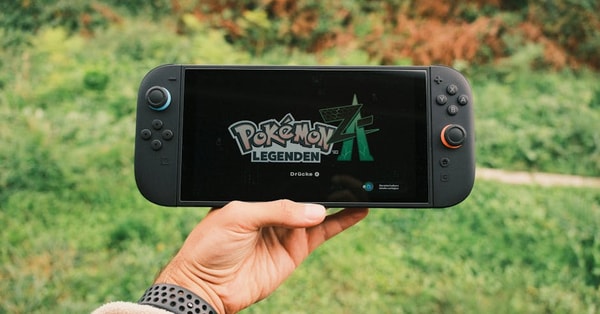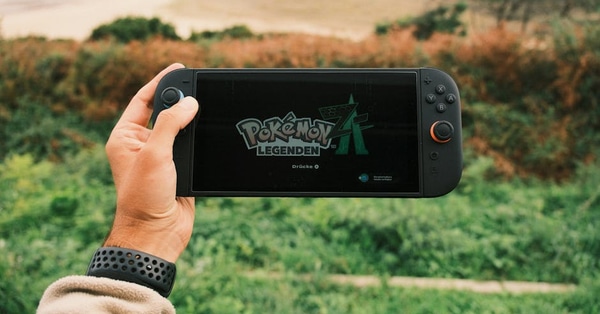Unraveling the Chilling Allure of Horror Games
Discover the captivating psychology behind horror games and why players can't resist the thrill of fear.
In the realm of horror games, the journey into the unknown often begins with sound. In a San Francisco Bart train tunnel, audio designer Don Veca recorded the haunting metallic sound of a train – a noise he described as "like demons in agony, beautifully ugly." This unnerving sound would later be featured in the acclaimed 2008 game Dead Space.
Veca recalls, "We dropped that screeching, industrial noise at full volume right after the vacuum silence – creating one of the game’s most jarring sonic contrasts." While some game designers were skeptical, the impact of this sound has become a hallmark of horror gaming. Nearly two decades since Dead Space first sent chills down players’ spines, horror game developers worldwide continue to explore innovative ways to terrify their audiences. What drives this obsession with fear, and why do we keep returning to these unsettling experiences?
According to Veca, the essence of true fear lies in auditory elements. He emphasizes that it begins in the mind, stating, "It starts with psychology – not the fear of what is, but of what might be." Real horror doesn’t stem from a straightforward threat like a robber; it’s found in the unsettling shadows lurking behind doors, the unnerving silence, and the anticipation of an impending danger.

Veca elaborates on this unpredictability, explaining how it shaped the sound design of Dead Space: "We built tension like a slow tide. Something could happen … something might happen … and then nothing – just a kitten in the kitchen. You laugh, the adrenaline fades, and three seconds later: claws, blood, screaming!" This ebb and flow of tension and release keeps players engaged.
Jason Graves, the BAFTA-winning composer behind the haunting scores of Dead Space and Until Dawn, supports Veca’s insights. He explains that sound and music play a crucial role in preparing players for fear. "It’s all about the buildup, the tension, and then the release when something jumps out at you," he says.
Graves approached the score for Dead Space as if it were an infected entity, mirroring the game’s narrative of a crew transformed into monsters. "I ‘infected’ the orchestra," he notes, utilizing unusual techniques such as tapping instruments and avoiding conventional keys or chords to create clusters of tension. By having strings play softly and randomly, he crafted a living, dissonant room tone that was always shifting and unpredictable.

If you're skeptical about the power of sound, Graves offers an interesting experiment: "My daughter tried Until Dawn and kept freaking out. I told her to mute it – and then she got through it fine. If the picture’s off but you still hear something, that’s what our brains are wired for. The monster under the bed, the fin on the water – your imagination fills the gaps, and that’s 10 times scarier than anything we can show." This psychological connection to sound is pivotal in creating immersive horror experiences.
For cult game developer Swery (real name Hidetaka Suehiro), fear transcends mere jump scares; it delves into the human experience. His exploration of what truly frightens players began when his mentor, Tokuro Fujiwara, the creator of Resident Evil, posed a pivotal question. Swery realized that fear is deeply rooted in human emotions, making it essential to craft narratives that resonate with players on a personal level.
The fascination with horror games is not just about the scares; it reflects broader cultural trends. As players seek thrills and adrenaline, horror games serve as a unique outlet for confronting fears in a controlled environment. This exploration of fear ties into the popularity of indie games that often push boundaries and offer fresh takes on the genre.
📖 Read more:
games
As Halloween approaches, the allure of horror games becomes even more pronounced. Many players find themselves drawn to the chilling narratives and immersive experiences that these games provide. The thrill of facing the unknown, of navigating through dark environments filled with unseen dangers, keeps players returning for more.
As we dissect the intricate psychology behind horror games, it becomes evident that the interplay of sound, narrative, and human emotion creates a compelling experience that resonates with players. The iconic sounds crafted by visionaries like Veca and Graves continue to shape the genre, ensuring that horror games remain a significant part of gaming culture. Whether driven by a desire for adrenaline or a need to confront our fears, gamers will undoubtedly keep hitting that start button, eager to dive into the terrifying worlds that await them.
Tags:
Related Posts
Game On: Top 10 Crossplay Games to Play with Friends in 2024
Looking to game with friends on different consoles? Check out the top 10 crossplay games for 2024 that will keep everyone connected and having fun!
Build Your Dream Gaming PC: A Guide for Every Budget
Ready to dive into gaming? Check out our guide to build the perfect gaming PC, whether you're on a $500 budget or ready to spend $2000!
Master Team Coordination: 5 Tips for Multiplayer Success
Struggling with multiplayer chaos? Discover five effective strategies to enhance your team's coordination and communication for epic gaming victories.
Build Your Dream Gaming Team and Community
Ever wanted to boost your gaming with a solid squad? Discover how to find your perfect teammates and create an unforgettable gaming community.
Finding Balance in Gaming: Setting Healthy Boundaries
Struggling to balance gaming with daily life? Discover practical tips to set boundaries and enjoy gaming without the guilt. Let's find that sweet spot together!
10 Must-Play Cross-Platform Games of 2023
Ready to elevate your gaming sessions? Check out these top cross-platform games that let you play with friends, no matter the device!